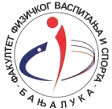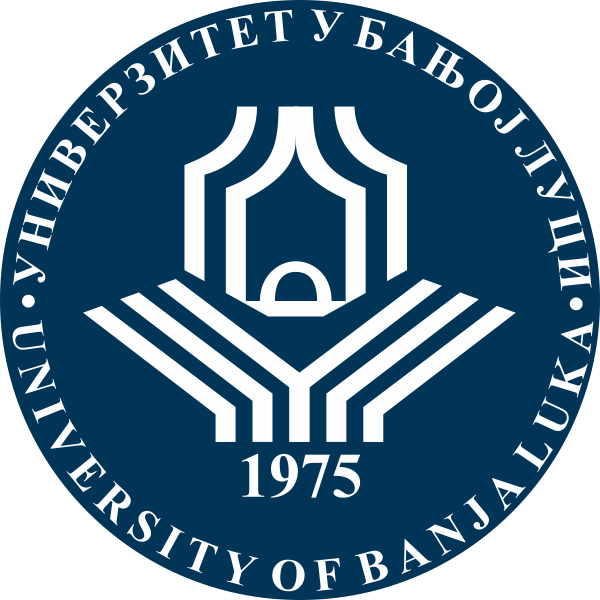SportLogia
Vol. 8, Issue 2, Decembar 2012.
A COMPARISON OF NUTRITIONAL KNOWLEDGE AND
FOOD HABITS OF COLLEGIATE AND NON-COLLEGIATE ATHLETES
Hamid Arazi1 and Rastegar Hosseini1
1Faculty of Sport Sciences, University of Guilan, Iran
ORIGINAL SCIENTIFIC PAPER
doi:10.5550/sgia.120802.en.100A
Summary
Nutrition is an important component of any physical fitness program. The main dietary goal for active individuals is to obtain adequate nutrition to optimize health fitness and to increase sports performance. The purpose of this study was to compare nutritional knowledge and food habits in collegiate s and non-collegiate athletes. The target population of this study was all male and female collegiate and non-collegiate athletes in Rasht city of Iran. After translate of the standard nutrition knowledge and attitudes survey questionnaire Zawila et al., and adjust of some questions, questionnaire was evaluated by Professors of faculty of physical education and sport sciences. The reliability guided Cronbach Alpha value of .81. A researcher-built questionnaire which was developed to measure subject’s nutrition knowledge and habits, distributed to 130 collegiate and non-collegiate athletes males and 120 Collegiate and non- collegiate athletes females randomly. The questionnaire contained 15 nutrition knowledge questions and 25 nutrition habits questions. The collected data was analyzed by t-test, one-way ANOVA and Pearson correlation coefficient (p < .05). The correct response rate for the sport nutrition and general nutrition score were in collegiate athletes male (57.15; 52.5%) and athletes female (58.14; 54.85%); non-collegiate athlete’s males (41.55; 39.86%) and athletes female (42.11; 40.66 %) respectively. Also, mean nutrition scores in collegiate athlete’s males and females were significantly higher than non-collegiate athletes male and females. Furthermore, there were significant differences in the total mean score questionnaire between collegiate and non- collegiate athletes (p < .05). Based on the result of our study the knowledge of Iranian non-collegiate athletes were lower than collegiate athlete. For this reason, nutrition knowledge and attitudes of Iranian non-collegiate athletes need to improve. So, these suggest that nutrition lectures’ courses is one of the solutions to increase knowledge about nutrition.
Key words: nutritional knowledge, attitudes, athletes.
References
Abood, D. A., Black, D. R., & Birnbaum, R. D. (2004). Nutrition education intervention for college female athletes. Journal of Nutrition Education Behavior, 36, 135–139. doi: 10.1016/S1499-4046(06)60150-4 ![]()
American College of Sports Medicine, American Dietetic Association, & Dietitians of Canada. (2000). Nutrition and athletic performance. Medicine and Sport Science, 32(12), 2130–2145.
Azizi, M., Rahmani-Nia, F., Malaee, M., Malaee, M., & Khosravi, N. (2010). A study of nutrition knowledge and attitudes of elite college athletes in Iran. Brazilian Journal of Biomotricity, 4(2), 105–112.
Barr, S. I. (1987). Nutrition knowledge of female varsity athletes and university students. Journal of American Dietetic Association, 87, 1660–1664. PMid: 3680825
Beals, K. A., & Manore, M. M. (1998). Nutritional status of female athletes with subclinical eating disorders. J Am Diet Assoc, 98, 419–425.
doi: 10.1016/S0002-8223(98)00096-0 ![]()
Chang, S. L. (1987). Survey on health knowledge of college students in the middle area of Taiwan. Public Health, 14, 250–273.
Chapman, P., & Toma, R. B. (1997). Nutrition knowledge among adolescent high school female athletes. Adolescence, 32, 437–446. PMid: 9179339
Cotugna, N., Vickery, C. E., & McBee, S. (2005). Sports Nutrition for Young Athletes. The Journal of School Nursing, 21(6), 323–328. doi: 10.1177/10598405050210060401 ![]()
Dunn, D., Turner, L. W., & Denny, G. (2007). Nutrition knowledge and attitudes of college athletes. The Sport Journal, 10(4), 1–5.
Frederick, L., & Hawkins, S. T. (1992). A comparison of nutrition knowledge and attitudes, dietary practices, and bone densities of postmenopausal women, female college athletes and nonathletic college women. Journal of American Dietetic Association, 92, 199–205.
Georgia, S., Guldan, Y. W., Lin, Y., Zhao, M., Xiang, D. P., Yang, L., & Long, F. (1993). Evaluation of a nutrition education activity for medical student in china. Asia Pacific J Clin Nutr, 2, 71–76.
Hassapidou, M. N., Fourtounopoulos, D., Efstratiou, E., Kitsou, S., & Papakitsos, C. (2003). Dietary intakes of Greek basketball players. Nutrition and Food Science, 33, 23–27. doi: 10.1108/00346650310459536 ![]()
Jacobson, B. H., Sobonya, C., & Ransone, J. (2001). Nutrition practices and knowledge of college varsity athletes: A follow-up. Journal of Strength and Condidioning Research, 15, 63–68. doi: 10.1519/1533-4287(2001)015<0063:NPAKOC>2.0.CO;2;![]() doi: 10.1519/00124278-200102000-00011
doi: 10.1519/00124278-200102000-00011 ![]()
Jessri, M., Jessri, M., RashidKhani, B., & Zinn, C. (2010). Evaluation of Iranian College Athletes’ Sport Nutrition Knowledge. International Journal of Sport Nutrition and Exercise Metabolism, 20, 257–263. PMid: 20601743
Kearney, J. M., & McElhone, S. (1999). Perceived barriers in trying to eat health ierresults of a pan-EU consumer attitudinal survey. British Journal of Nutrition, 81(2), 133–137. doi: 10.1017/S0007114599000987 ![]()
Kunkel, M. E., Bell, L. B., & Luccia, B. H. D. (2001). Peer nutrition education program to improve nutrition knowledge of female collegiate athletes. Journal of Nutrition Education, 33, 114–115. doi: 10.1016/S1499-4046(06)60175-9 ![]()
Laurie, G., Zawila, C., & Steibt, B. (2003). The female collegiate cross-country runner: nutritional knowledge and attitudes. Journal of Athletic Training, 38, 67–74.
Lin, W., & Lee, Y. W. (2005). Nutrition knowledge, attitudes, and dietary restriction behavior of the Taiwanese elderly. Asia Pac J Clin Nutr, 14(3), 221–229. PMid: 16169832
Lissner, L., & Heitmann, B. L. (1995). Dietary fat and obesity: evidence from epidemiology. European Journal of Clinical Nutrition, 49, 79–90. PMid: 7743988
Malinauskas, B. M., Overton, R. F., Cucchiara, A. J., Carpenter, A. B., & Corbett, A. B. (2007). Summer league college baseball players: Do dietary intake and barriers to eating healthy differ between game and non-game days? The Sport Management and Related Topics Journal, 3(2), 23–34.
Mitchell, S. J. (1990). Changes after taking a college basic nutrition course. Journal of American Dietetic Association, 90, 955–961. PMid: 2365937
Nancy, C., Connie, E., Vickery, R. D., & Mcbee, S. (2005). Sports Nutrition for Young Athletes. Journal of School Nurses, 21, 323–328. doi: 10.1177/10598405050210060401 ![]()
O’dea, J., & Abraham, S. (2001). Knowledge, beliefs, attitudes, and behaviors related to weight control, eating disorders, and body image in Australian trainee home economics and physical education teachers. Journal of Nutrition Education, 33, 332–340. doi: 10.1016/S1499-4046(06)60355-2 ![]()
Ozdoğan, Y., & Ozcelik, A. O. (2011). Evaluation of the nutrition knowledge of sports department students of universities. Journal of the International Society of Sports Nutrition, 8, 11. doi: 10.1186/1550-2783-8-11;![]() PMid: 21892942; PMCid: 3177873
PMid: 21892942; PMCid: 3177873
Paschoal, V. C. P., & Amancio, O. M. S. (2004). Nutritional status of Brazilian elite swimmers. International Journal of Sport Nutrition and Exercise Metabolism, 14, 81–94. PMid: 15129932
Read, M., & Schlenker, E. D. (1993). Food selection patterns among the aged. In J. M. Smith (Ed.), Nutrition in Aging (pp. 45–53). 2nd ed. St. Louis, MO: Mosby Inc.
Rosenbloom, C. A., Jonnalagadda, S. S., & Skinner, R. (2002). Nutrition knowledge of collegiate athletes in a division I national collegiate Athletic Association Institution. Journal of the American Dietetic Association, 102(3), 418–420.
doi: 10.1016/S0002-8223(02)90098-2 ![]()
Ruka, S., Toyama, K., Amamoto, R., Liu, C. H., & Shinfuku, N. (2005). Nutritional knowledge, food habits and health attitude of Chinese university students–a cross sectional study. Journal of Nutrition, 4, 1475–1480.
Sakamaki, R., Toyama, K., Amamoto, R., Liu, C. H., & Shinfuku, N. (2005). Nutritional knowledge, food habits and health attitude of Chinese university students - a cross sectional study. Nutrition Journal, 4(4), 1–5.
Schmalz, K. (1993). Nutrition beliefs and practices of adolescent athlete’s. Journal of School Nurses, 9, 18–22. PMid: 8499690
Zawila, L. A., Steib, C. M., & Hoogenboom, B. (2003). The female collegiate cross-country runner: Nutritional knowledge and attitudes. Journal of Athletic Training, 38(1) 67–74. PMid: 12937475; PMCid: 155514
Wiita, B., Stombaugh, I., & Buch, J. (1995). Nutrition knowledge and eating practices of young female athletes. The Journal of Physical Education, Recreation, & Dance, 66(3), 36–41.
Yılmaz, E., & Özkan, S. (2007). Üniversite öğrencilerinin beslenme alışkanlıklarının incelenmesi [Examination of eating habits of university students]. Fırat Sağlık Hizmetleri Dergisi, 2(6), 87–104.
Yueching, W., & Yi-Chia, H. (1999). Is the College environment adequate for accessing to nutrition education: A study in Taiwan? Nutrition Research, 19, 1327–1337.




